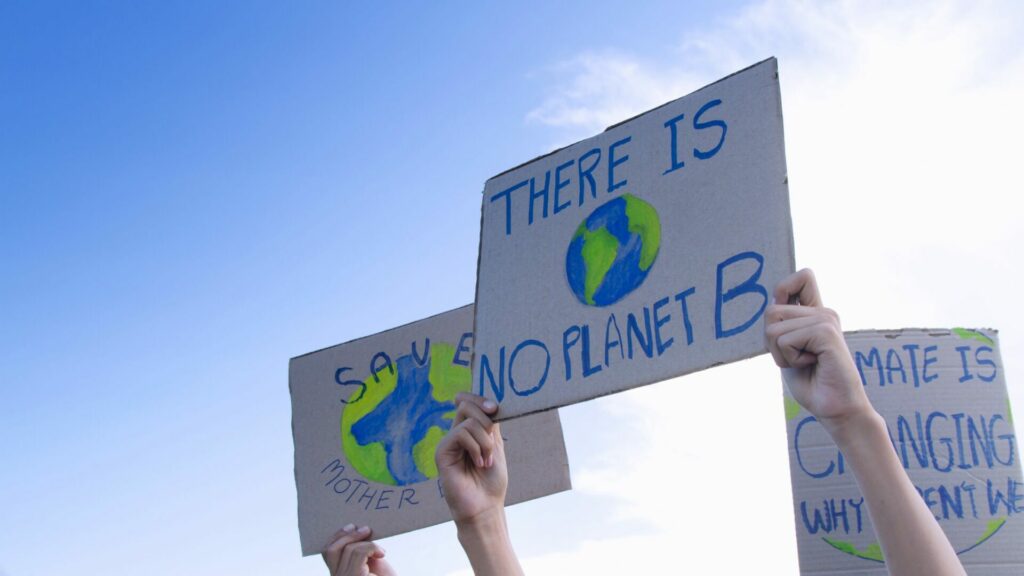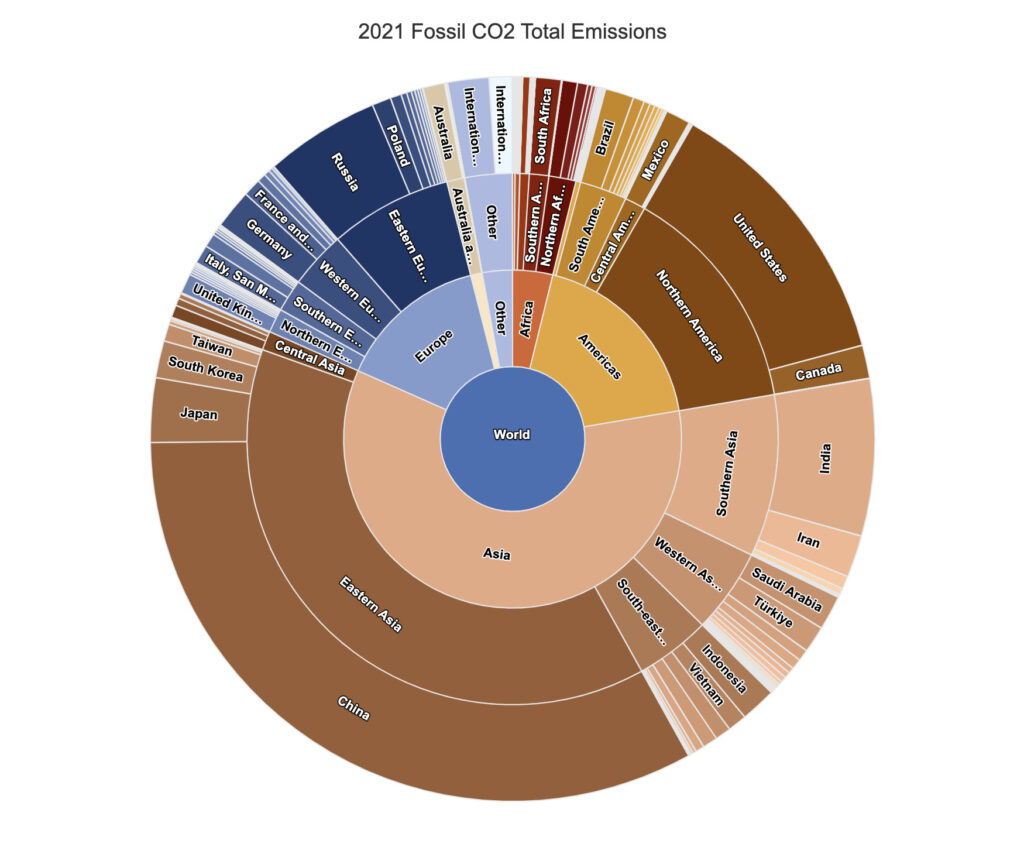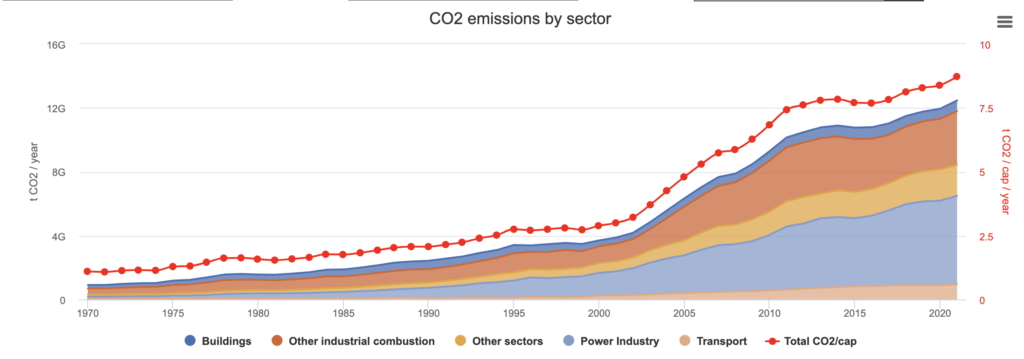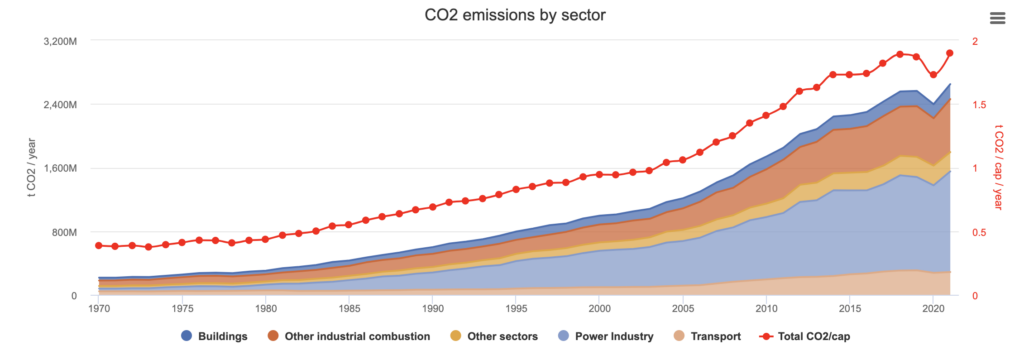BIOvative Magazin » Klimaschutzklage
Klimaschutzklage: Wie gut stehen Deine Chancen, erfolgreich eine lebenswerte Zukunft einzuklagen?
Inhalte
- Das Wichtigste zur Klimaschutzklage
- Dein Recht auf Klimaschutz
- Die Rechtsgrundlage zur Klimaschutzklage
- Lebenswerte Zukunft als Grundrecht
- Die Entstehung des Klimaschutz
- Die Klimaschutzpflicht
- Klimaschutzgesetz wird für verfassungswidrig erklärt
- Die Änderung des Klimaschutzgesetzes
- Der Erfolg von Klimaschutzklagen weltweit
- Pariser Abkommen
- Green Deal
- ESG und CSR
- Greenwashing und Berichtspflichten
- Was Du für den Klimaschutz tun kannst
- Fazit zur Klimaschutzklage
Klimaschutzklage: Wie gut stehen Deine Chancen, erfolgreich eine lebenswerte Zukunft einzuklagen?
- 13. April 2023
- Autor: Zhana Ivanova
- Lesezeit: 21 Minuten
Klimaschutz ist ein Grundrecht, das auch den zukünftigen Generationen zusteht. Im Jahr 2021 wurde die erste deutsche Klimaschutzklage eingereicht. Das Bundesverfassungsgericht entschied, dass der Staat mehr tun und schneller reagieren muss, um eine lebenswerte Umwelt zu sichern und die Generationengerechtigkeit zu bewahren. Aktuell bereitet der Gesetzgeber viele neue Regelungen vor: Klimaschutz hat nun Priorität. Dieser Artikel erklärt Dir die rechtlichen Hintergründe zur Klimaschutzklage.

Das Wichtigste zur Klimaschutzklage in Kürze
Was ist eine Klimaschutzklage?
Zur Klimaschutzklage zählt jede Klage, die einen Bezug zum Klimaschutz hat. Das Ziel dieser Klage kann die Erschaffung von neuen Normen oder die Verbesserung gültiger Regelungen durch den Gesetzgeber sein. Klimaschutzklagen können auch Staatsorgane oder Unternehmen vor Gericht bringen, wo sie zur Unterlassung von umweltschädlichen Aktivitäten aufgefordert und/oder auf Schadensersatz verklagt werden.
Wer ist aus rechtlicher Sicht für den Klimaschutz zuständig?
Der Staat ist rechtlich gesehen für den Klimaschutz zuständig. Sobald ein Recht auf eine Sache – sowie das Recht auf Klimaschutz – entsteht, entsteht auch eine Pflicht. Auf juristischer Ebene sprechen wir von einer Schutzpflicht.
Wer kann Klimaschutz einklagen?
Jede natürliche oder juristische Person kann Klimaschutz einklagen: Du als Person, einzelne Unternehmen oder Organisationen und auch mehrere Kläger zusammen.
Wo kannst Du Klimaschutzklagen einreichen?
Die Bundesregierung ist als Verwaltungsorgan des Staates die höchste Instanz. Sie hat eine Schutz- und Sorgepflicht gegenüber ihrer Bevölkerung. Die Zuständigkeit hängt von der Art der Klage ab:
- Zivilrechtliche Klagen kannst Du bei Amtsgerichten, Landesgerichten, Oberlandesgerichten und dem Bundesgerichtshof einreichen.
- Du als Privatperson oder Organisation kannst auf europäischer Ebene klagen, wenn der deutsche Staat aus Deiner Sicht zu wenig unternimmt. Du kannst Dich an den Europäischen Gerichtshof für Menschenrechte und die Europäische Kommission, z. B. durch eine Petition, wenden.
Brauchst Du einen juristischen Background, um eine Klimaschutzklage einzureichen?
Theoretisch nein, praktisch ja. Prinzipiell ist eine anwaltliche Vertretung keine Pflicht. Allerdings sollten Kläger über Fachkenntnisse verfügen, damit ihre Erfolgsaussichten steigen. Wenn Du selbst keine juristischen Kompetenzen hast, empfehlen wir Dir die Kontaktaufnahme mit Umweltorganisationen und Klimaschutzverbänden. Sie stehen Dir als kompetente Rechtsberatung zur Seite.
Juristischer Hintergrund: Wo ist Dein Recht auf Klimaschutz verankert?
Die rechtliche Grundlage bilden
- das Pariser Abkommen,
- der Green Deal,
- das Klimaschutzgesetz,
- das Lieferkettenvorsorgepflichtengesetz (auch Lieferkettengesetz genannt) und
- einzelne Gesetze zum Schutz der verschiedenen Umweltgüter.
Wir haben mit Greenpeace-Sprecher Benjamin Stephan gesprochen und ihn gefragt, mit welchen Instrumenten Bürgerinnen und Bürger Klimaschutz einklagen können. Er sagt:
„Welche Instrumente Bürgerinnen und Bürgern in Deutschland zur Verfügung stehen, hängt davon ab, bei wem man Klimaschutz einklagen möchte. Sehe ich meine Rechte durch staatliches Handeln oder nicht-Handeln verletzt, muss ich eine Klage gegen die Bundes- oder eine der Landesregierungen vor dem Verwaltungsgericht einreichen. Sind meine Grundrechte verletzt, ist es gegebenenfalls eine Verfassungsbeschwerde beim Bundesverfassungsgericht. Sehe ich meine Rechte durch klimaschädliches Verhalten eines Unternehmens verletzt, fordere ich das Unternehmen auf, dieses Verhalten zu unterlassen oder den Schaden zu beseitigen. Falls es dieser Aufforderung nicht nachkommt, folgt eine zivilrechtliche Klage. Der Ablauf unterscheidet sich nicht grundlegend von einem Rechtsstreit mit einem Nachbarn oder einer Handwerkerin.“ Außerdem berichtet er:
„Bisher haben sich Bürgerinnen und Bürger für eine Klage mit Umweltverbänden zusammengetan. Diese unterstützen die Klagen. Der Ursprung des Klimaurteils des Bundesverfassungsgerichts im April 2021 etwa, war eine von Greenpeace über Jahre unterstützte und begleitete Klage von mehreren Bio-Landwirtinnen und Bio-Landwirten. Sie führte schließlich dazu, dass die Bundesregierung ihr Klimaschutzgesetz nachgebessert hat. Diese erfolgreiche Verfassungsbeschwerde ist in Deutschland bisher das einzige höchstinstanzliche Klimaurteil. Die Verfahren sind aufwändig und gehen meist über mehrere Instanzen - das kostet Zeit, Energie, und Ressourcen, die für eine Einzelperson schwer zu stemmen sind.“
Die Rechtsgrundlage zur Klimaschutzklage
Besonders wichtig ist das Klimaschutzgesetz: im Mittelpunkt stehen die Klimaziele für Deutschland. Es wurde 2019 verabschiedet, um den europäischen Green Deal in das deutsche Rechtssystem zu integrieren. Im Jahr 2021 – dank der ersten erfolgreichen Klima-Klage Deutschlands – wurde das Klimaschutz-Gesetz geändert. Das Klimarecht ist Teil des umfangreichen Umweltrechts. Darunter fallen sämtliche Regelungen etwa zum Immissionsschutz, Naturschutz, Tierschutz, Bodenschutz, Gewässerschutz, Abfallrecht.
Deutschland ist ein föderalistischer Staat. Das bedeutet, dass die Zuständigkeiten zwischen Bund und Ländern aufgeteilt sind. In der Vergangenheit gab es einige Versuche seitens des Gesetzgebers, alles unter einen Hut zu bringen und ein sogenanntes Umwelt-Gesetzbuch zu kreieren. Dieses sollte den Umweltschutz neu ausrichten und vereinfachen. Allerdings können bis dato keine großen Fortschritte verzeichnet werden. Inzwischen ließ das Bundesumweltministerium verlauten, dass weitere Schritte des Reformprojekts eingestellt werden.
Obwohl das Umweltgesetzbuch (zumindest vorerst) vom Tisch ist, beschäftigt sich der Gesetzgeber weiterhin mit dem Umwelt- und Klimaschutz. Einige Gesetze sind in der Vorbereitung oder werden gerade geändert.
Die lebenswerte Zukunft ist Dein Grundrecht
Journalistinnen und Journalisten berichten immer öfter von klimabedingten Phänomenen wie Hitzewellen, gewaltigen Stürmen, Überschwemmungen und Erdrutschen. Unser Handeln hat nicht nur unmittelbare Folgen für uns – Klimaschutzklagen sollen vor allem unsere Kinder vor den verheerenden Konsequenzen bewahren.
Das Recht auf Klimaschutz ist das Recht auf Zukunft, auf Lebensraum und Existenzgrundlagen für die zukünftigen Generationen. Das Bundesverfassungsgericht hat das 2021 als Grundrecht anerkannt. Schauen wir uns nun an, wie sich die Gesetze rund um den Klimaschutz entwickeln und wie Bürgerinnen und Bürger aktiv eine lebenswerte Zukunft einklagen können.
Die Entstehung des Klimaschutzes und der aktuelle Stand
Grundrechte scheinen in Europa schon ewig selbstverständlich zu sein, doch tatsächlich liegt die Entstehung gar nicht so lange zurück. Erst im Jahr 1948 wurde die Allgemeine Erklärung der Menschenrechte verkündet. Seitdem wird sie ständig angepasst und erweitert.
75 Jahre sind nur ein kurzer Augenblick in der gesamten Menschheitsgeschichte. Ganz zu schweigen vom Bewusstsein für Klimaschutz – das steckt noch in den Kinderschuhen. Das deutsche Klimaschutzgesetz wurde tatsächlich erst im Jahr 2019 verabschiedet.
Die Klimaschutzpflicht
Seit 1994 ist der Klimaschutz in der deutschen Verfassung verankert. Der Staat ist demnach verpflichtet, sich für den Klimaschutz einzusetzen.
Laut Artikel 20a des Grundgesetzes besteht die Klimaschutzpflicht des Staates darin, die natürlichen Lebensgrundlagen für Dich und Deine Nachkommen zu sichern.
Vor 30 Jahren war Klimaschutz ein abstraktes Vorhaben. Es gab keine konkreten Vorgaben oder einklagbaren Ansprüche. Ein sogenanntes rechtliches Staatsziel, das mit Gesetzen durchgesetzt werden soll. Der Gesetzgeber stand nun vor einer neuen Aufgabe: Er musste den Umweltschutz bei allen legislativen Aktionen und Maßnahmen berücksichtigen. Erst viele Jahre später konnte man von richtigen Gesetzen und Normen sprechen – und einige Zeit wird es vermutlich noch dauern, bis wir uns über eine systematische und umsetzbare Gesetzgebung freuen können, die den Klimaschutz in nahezu allen Teilen des gesellschaftlichen Lebens einbezieht.
Wir fragten Greenpeace-Sprecher Benjamin Stephan, ob der Staat seiner Meinung nach bereits die richtigen Rechtsmittel geschaffen hat, damit Unternehmen grüner werden können. Er ist skeptisch:
„In Deutschland fehlt es in fast allen Bereichen an der notwendigen Gesetzgebung, um überhaupt sicherzustellen, dass Ziele aus dem Klimaschutzgesetz erreicht werden. Besonders deutlich ist diese Lücke bei global operierenden deutschen Unternehmen wie Volkswagen. Hier fehlen Vorgaben, dass diese beispielsweise die Strategie ihres Gesamtkonzerns an Klimaschutzzielen ausrichten müssen.“
Klimaschutzgesetz wird 2021 für verfassungswidrig erklärt
Eine Klimaklage bringt den Ball im Jahr 2021 ins Rollen: Das Bundesverfassungsgericht erklärt das bis dahin aktuelle Klimaschutzgesetz für verfassungswidrig. Der Beschluss stützt sich auf das Recht auf Leben und Gesundheit (Art. 2 Abs. 2 Satz 1 GG) und schließt auch das Grundrecht auf Eigentum (Art. 14 Abs. 1 GG) ein, weil durch klimaveränderungsbedingte Ereignisse auch Eigentum wie landwirtschaftlicher Besitz Schaden nehmen kann.
Was genau bedeutet das? Alle deutschen Bürgerinnen und Bürger sind Rechtsträger in Bezug auf Umwelt- und Klimaschutz. Deswegen können sie unter bestimmten Voraussetzungen Ansprüche geltend machen.
Fakten zur Klimaschutzklage:
- Der Brief eines elfjährigen Mädchens namens Marlene aus München hat die Klimaschutzklage ausgelöst.
- Die Deutsche Umwelthilfe reichte im Januar 2020 ihre Klage gegen die Regierung der Bundesrepublik Deutschland beim Bundesverfassungsgericht ein.
- Sie bestand aus 2 Klagen: Eine für die unmittelbar Betroffenen in Bangladesch und Nepal und eine zweite für die heranwachsende Generation von Marlene, die langfristig die Konsequenzen vom Klimawandel zu tragen hat.
- Im März 2021 erklärte das Bundesverfassungsgericht das Klimaschutzgesetz als verfassungswidrig, weil die Klimaziele zu weit in der Zukunft lagen.
Die Änderung des Klimaschutzgesetzes
Die erfolgreiche Klimaschutzklage hat den Gesetzgeber gezwungen, Änderungen am Klimaschutzgesetz vorzunehmen. Dazu zählt:
- Das Ziel „Klimaneutralität“ wird fünf Jahre vorgezogen (2045).
- Verbindliche Zwischenziele mit Referenzwerten gegenüber 1990 wurden festgelegt.
- Bis zum Jahr 2030 wird die Treibhaus-Minderung von 55 auf 65 Prozent angestrebt.
- Bis zum Jahr 2040 wird eine Jahresemissions-Mengenminderung von 88 Prozent angestrebt.
Die Zielkonflikte: Wirtschaftlichkeit vs. Nachhaltigkeit
Wieso hat der Gesetzgeber trotz wissenschaftlicher Beweise und andauernder Bürgerproteste wie Fridays for Future dafür so lange gebraucht? Konkrete Maßnahmen zur Erreichung der grünen Ziele wurden immer wieder aufgeschoben. Erst 2019 ist das deutsche Klimaschutzgesetz in Kraft getreten und es wurde schon jetzt teilweise für verfassungswidrig erklärt! Weitere Verzögerungen sind nicht mehr hinnehmbar. Lange standen die wirtschaftlichen Interessen im Vordergrund. Es muss sich schleunigst etwas ändern, damit wir mit der grünen Agenda vorankommen.
Auf der anderen Seite stehen Unternehmen vor der großen Aufgabe, ihre Geschäftsabläufe umzustellen, neue Energiequellen zu nutzen oder in andere Technologien zu investieren. Das alles kostet Zeit und Geld. Daneben ist sich die Politik bis heute uneinig, ob die grüne Betrachtung erneuerbarer Energien und neuer Technologien ausreicht. Jeder Aspekt des Entwicklungs-, Produktions- und Entsorgungsprozesses müsse laut kritischen Stimmen umfassend betrachtet werden.
Der Erfolg von Klimaschutzklagen weltweit
Das Umweltprogramm der Vereinten Nationen erstellte eine Übersicht über die laufenden Gerichtsverfahren zum Thema Klimawandel. Du findest den Bericht zur sogenannten Climate-Change-Litigation online unter dem Namen Klimawandel vor Gericht – ein globaler Überblick. Ihm zufolge wurden 2018 884 Klimaschutzklagen in 24 Ländern erhoben. Allein im Jahr 2020 waren es 1.550 Klagen in 38 Ländern. Tatsächlich waren bis jetzt nur 2 Klagen – eine in Deutschland und eine in Frankreich – komplett erfolgreich. Ein paar führten zumindest teilweise zum Ziel. Manche Verfahren sind noch nicht abgeschlossen. Das klingt auf dem ersten Blick nicht viel, aber diese Klimaschutzklagen setzen ein Zeichen und beeinflussten sicherlich den Fortschritt im Klimaschutzrecht: in 100 Ländern gilt Klimaschutz inzwischen als Grundrecht.
Mit einer Klimaschutz-Klage kann die Bevölkerung ihre Regierung weltweit zur Rechenschaft ziehen und die Durchsetzung von klimarelevanten Gesetzen und Maßnahmen juristisch einfordern. Die Factsheets zum Klimaschutz weltweit von Greenpeace belegen, die Zahl der eingereichten Klimaklagen steigt.
Bahnbrechend war die Verurteilung des Großkonzerns Shell zur Einführung von umfassenderen Klimaschutz-Maßnahmen durch das Bezirksgericht von Den Haag (Aktenzeichen C/09/571932, HA ZA 19–379).
Pariser Abkommen – gemeinsam gegen den Klimawandel
Der Klimaschutz macht an Grenzen ebenso wenig Halt wie der Klimawandel. Seit 1972 wird auf internationaler Ebene in Klimaverhandlungen über mögliche Lösungen diskutiert. Das EU-Parlament hat eine interaktive Zeittafel – eine Übersicht der Klimaverhandlungen – zusammengestellt.
197 Staaten einigten sich im Zuge des Pariser Abkommens darauf, die Erderwärmung zu begrenzen. Die Temperatur soll im Vergleich zum vorindustriellen Niveau reduziert werden („deutlich unter 2 °C“). Langfristig sollen die Staaten möglichst 1,5 °C erreichen.
Green Deal
Ein Jahr später wurde das Übereinkommen vom Europa-Parlament gebilligt und somit die allererste weltweite, rechtsverbindliche und globale Klimaschutz-Vereinbarung verabschiedet. Europa setzt sich ambitionierte Ziele und möchte ein Vorbild für andere Staaten sein.
Mithilfe dieses europäischen Klimagesetzes soll die EU bis 2050 den CO₂-Ausstoß in allen Sektoren drastisch senken und damit zum ersten klimaneutralen Kontinent werden. Alle Länder haben sich dazu verpflichtet, nationale Emissionen zu erfassen und die Daten in einem Transparenz-Bericht zu veröffentlichen.
Laut diesem Bericht war Deutschland im Jahr 2020 für 22 % der europäischen Treibhausgas-Ausstöße verantwortlich. Auf globaler Ebene sind das 1,06 % (Tendenz fallend). Im Vergleich zu großen Ökonomien wie China und Indien hat Deutschland einen kurzen Weg zur Klimaneutralität vor sich.
Aus ESG und CSR wachsen weitere Verpflichtungen für Unternehmen
Vielleicht bist Du bereits auf die Begriffe Corporate Social Responsibility (CSR) und Environmental Social Governance (ESG) gestoßen. Auf diese gehen wir im Folgenden näher ein.
Was bedeutet gesellschaftliche Verantwortung?
2010 haben einige Länder eine ISO-Richtlinie erarbeitet, die die Social Responsability definiert. In Deutschland wurde diese Norm im April 2021 als DIN EN ISO 26000 veröffentlicht. Sie dient als Leitfaden und spricht Empfehlungen für Organisationen aus. Die Norm ist anders als beispielsweise das Zertifikat Kompost OK Home keine Zertifizierung, sondern beschreibt lediglich, welches Verhalten positiv gewertet wird. Unternehmen können die Richtlinie als Fahrplan nutzen, um ihre Geschäftsprozesse schon vor der Einführung einer Pflicht umzustellen oder sich mit der Norm langsam auf die bevorstehende „Tsunamigesetzwelle“ vorzubereiten.
Was bedeutet Corporate Social Responsibility (CSR)?
Nachhaltigkeit hat sowohl soziale als auch umweltpolitische Auswirkungen. Das Pariser Klimaabkommen war die Grundlage für die CSR: alle Unternehmenstätigkeiten sollen hinsichtlich der Menschenrechte, sozialer Aspekte und Umweltaspekte unter dem Begriff Corporate Social Responsibility (CSR) erfasst werden.
Laut Artikel 289b ff. HGB (Handelsgesetzbuch) müssen bestimmte kapitalorientierte Unternehmen beispielsweise neben dem Finanzbericht jährlich einen CSR-Bericht erstellen. Immer mehr (potentielle) Geschäftspartnerinnen und Geschäftspartner stellen Fragen, die nichts mit Finanzen zu tun haben. Mit diesen Berichten beantworten die Unternehmen diese Fragen zur Einschätzung der Unternehmenswerte, des Images und der Kundenbindung. Weitere Gesetze in diesem Bereich sind bereits in Planung.
Was hat es mit Greenwashing und Berichtspflichten auf sich?
Die CSR hat viele Unternehmen dazu verleitet, sich nach außen grün zu präsentieren, obwohl ihre Produkte und Dienstleistungen wenig bis gar nichts damit zu tun haben. Der Fachbegriff hierfür ist Greenwashing.
Aktuell gibt es keine konkreten Normen gegen Greenwashing, um gerichtlich gegen diese Unternehmen vorzugehen. Dennoch sind schon viele Klagen gegen Greenwashing eingegangen.
Ein aktuelles Beispiel ist die Klage vom 26. September 2022: Die Verbraucherzentrale Baden-Württemberg verklagt die Deutsche-Bank-Tochtergesellschaft DWS aufgrund von „irreführender Werbung für angeblich nachhaltige Geldanlagen“ (Az. 3-10 O 83/22).
Andere Beispiele dafür sind die Klagen Foodwatch vs. Rewe und die Beschwerde gegen Lufthansa im Vereinigten Königreich. Mehrere Organisationen setzen sich gemeinsam für ein generelles Verbot von Werbung für fossile Produkte ein. Diese Klagen sollen den Gesetzgeber aktivieren, fehlende Normen und Rechtsprechungen anzugehen.
Die EU-Kommission will Greenwashing nun endlich einen Riegel vorschieben. Es ist ein Gesetz in Planung, dass Verbraucher schützen und ihnen transparente und zuverlässige Informationen über die Nachhaltigkeit von Produkten zur Verfügung stellen soll. Labels wie “umweltfreundlich” oder “nachhaltig” sollen so besser geschützt und Versprechen nachprüfbar werden.
Was bedeutet ESG?
In Bezug auf die Sorgfaltspflicht ist der Gesetzgeber schon einen Schritt weiter. Die Verantwortlichkeit ist bereits als konkrete Pflicht im Gesetz verankert.
ESG steht für Environmental Social Governance, also für die umweltbewusste und sozialgerechte Unternehmensführung. ESG umfasst neben ökologischen auch ethische Themen. Dadurch soll eine verantwortungsvolle Unternehmenskultur geschaffen und gestärkt werden. Diese soll sich in allen unternehmerischen Tätigkeiten widerspiegeln.
ESG besteht aus drei nachhaltigkeitsbezogenen Verantwortungsbereichen:
- Umwelt: Umweltverschmutzung, Umweltgefährdung, Treibhausgasemissionen, Energieeffizienz
- Soziales: Arbeitsrecht und Gesundheitsschutz, Gendergerechtigkeit, gesellschaftliche Verantwortung
- Nachhaltige Unternehmensführung: anhaltende Unternehmenswerte, Unternehmenssteuerung und Kontrollprozesse
Immer mehr Vorgaben verpflichten Unternehmen, diese ESG-Kriterien einzuhalten. Ein Anwendungsbeispiel für die Sorgfaltspflicht ist im Lieferkettensorgfaltspflichtengesetz zu finden: Mittlere und kleine Unternehmen (KMUs) sind verpflichtet, Menschenrechts- und Umweltverstöße innerhalb ihrer Lieferketten vorzubeugen und Verletzungen aufzudecken sowie zu beseitigen. Unternehmen, die bereits jetzt die ESG-Kriterien beherzigen, minimieren ihr Risiko Klimaschutzklagen zu erhalten und Klimaschulden anzusammeln.
Was Du für den Klimaschutz tun kannst
Ja, Du hast ein Grundrecht auf eine lebenswerte Zukunft. In Sachen Klimaschutz stehen dir einige Instrumente zur Verfügung.
Deinen Blickwinkel ändern
Im Vordergrund steht die Umstellung Deiner Denkweise und Deiner Handlungen. Jede noch so kleine Tat, wie die Verwendung von nachhaltigen Produkten oder Änderungen Deiner Gewohnheiten im Alltag, hat Auswirkungen auf die Umwelt und kann Dein Umfeld inspirieren. Hier im Magazin geben wir Dir Tipps für echte Hebel im Alltag für mehr Nachhaltigkeit und wie Du Greenwashing erkennst und so bessere Entscheidungen treffen kannst.
Dein Demonstrationsrecht nutzen
Um deinen Forderungen Nachdruck zu verleihen, kannst Du Dich an Demonstrationen (z.B. Fridays for Future) beteiligen oder selbst in Deiner Region aktiv werden und Deine Ideen einbringen.
Von juristischen Instrumenten Gebrauch machen
Wie eingangs erwähnt, begründet sich der Klimaschutz auf diversen rechtlichen Grundlagen. Und wie Greenpeace Sprecher Benjamin Stephan für uns gut zusammengefasst hat, hast Du einige Möglichkeiten:
- Siehst Du Deine Rechte durch staatliches Handeln oder nicht-Handeln verletzt, musst Du eine Klage gegen die Bundes- oder eine der Landesregierungen vor dem Verwaltungsgericht einreichen.
- Siehst Du Deine Grundrechte verletzt, ist es gegebenenfalls eine Verfassungsbeschwerde beim Bundesverfassungsgericht.
- Sind Deine Rechte durch klimaschädliches Verhalten eines Unternehmens verletzt, kannst Du das Unternehmen auffordern, dieses Verhalten zu unterlassen oder den Schaden zu beseitigen. Falls es dieser Aufforderung nicht nachkommt, folgt eine zivilrechtliche Klage.
Diese Wege lassen sich vor allem gut gemeinsam mit Umweltverbänden umsetzen.
Fazit zur Klimaschutzklage
Obwohl gerade einiges passiert, liegt immer noch ein langer Weg vor uns: Nun ist Wachsamkeit geboten. Bürgerinnen und Bürger können echte Nachhaltigkeit und soziale Gerechtigkeit mit einer Klimaschutzklage proaktiv einklagen. Diese zwei Begriffe beeinflussen maßgeblich eine neue grüne Denkweise. Sie sollten sich im gesellschaftlichen Handeln widerspiegeln. Im Handeln einzelner Personen, Organisationen sowie Unternehmen und öffentlicher Institutionen.
Wirtschaft und Politik stehen vor einer revolutionären Gesetzeswende und schon heute gibt es zahlreiche juristische Instrumente, mit denen Du Deinen Beitrag leisten kannst. Die Änderung des Klimaschutzgesetz aufgrund der Klimaschutzklage zeigt: Sie ist eins dieser wirksamen Instrumente. Die Klimaschutzklage kann den Weg zu einer großen Wende ebnen. Für echte Nachhaltigkeit brauchen wir dann allerdings nicht nur erfolgreiche Klagen, sondern auch konsequente und vor allem so umfassende Gesetzes-Anpassungen, die die hohen Ziele der EU (1,5 Grad) überhaupt realistisch machen. Die konsequente und nicht so zögerliche Umsetzung der Vorgaben in allen Lebensbereichen ist entscheidend.
Du möchtest auf dem Laufenden bleiben? Melde Dich für unseren Newsletter an und folge uns auf Social Media, um automatisch News zum Klimaschutzgesetz und anderen spannenden Nachhaltigkeits-Themen von uns zu erhalten!

Zhana Ivanova

Zhana Ivanova
Diese Artikel könnten Dich auch interessieren

Neues Biomüll-Gesetz 2025: Was sich für Dich ändert
Ab dem 1. Mai 2025 tritt in Deutschland eine neue Verordnung in Kraft, die die Entsorgung von Biomüll strenger regelt. Ziel ist es, die Qualität des Biomülls zu verbessern und die Umweltbelastung durch Fremdstoffe zu reduzieren. Doch was bedeutet das konkret für Dich als Verbraucher:in?

Maden in der Biotonne: Was tun?
Die Biotonne ist praktisch, umweltschonend – und im Sommer willkommenes Zuhause für allerlei Ungeziefer. Deshalb haben wir wertvolle Tipps zusammengestellt, die zeigen, was Du gegen Maden in der Biotonne tun kannst.

Zeitungspapier
Grundsätzlich ist Zeitungspapier biologisch abbaubar und kann daher auch in geringen Mengen in die Biotonne geworfen werden.




